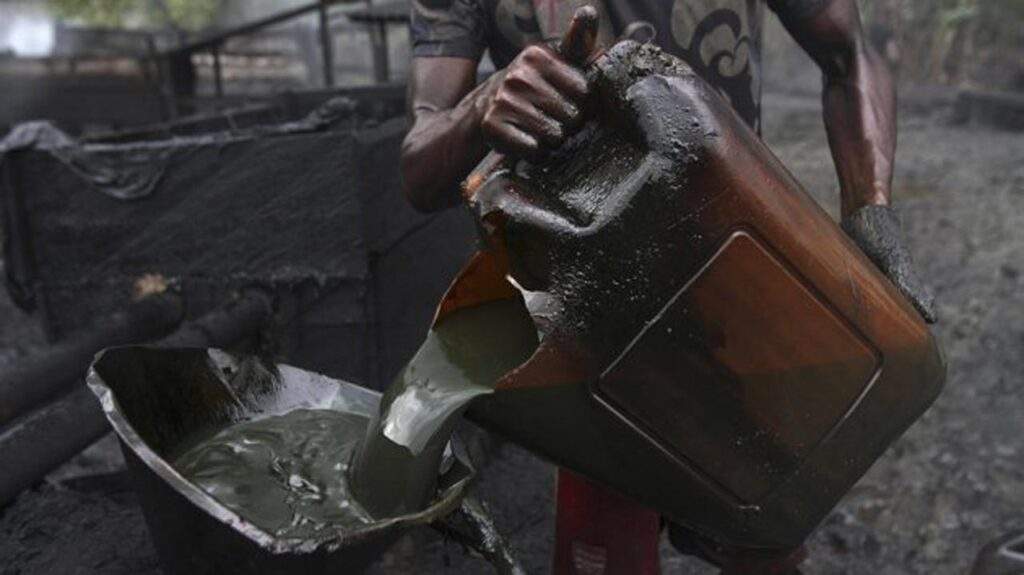The Nigerian National Petroleum Company Limited (NNPCL) has revealed the startling discovery of 83 unauthorized refineries in the Niger Delta within the span of just seven days. This revelation was made public through the company’s official communication channels on Tuesday.
In addition to the illicit refineries, the NNPCL also identified 15 unauthorized pipeline connections within the same period. The company disclosed that these unauthorized activities were prevalent in the states of Rivers, Abia, Imo, and Bayelsa, intensifying concerns about the extent of illegal oil-related operations in the region.
Furthermore, the NNPC reported a total of 211 cases of oil theft and vandalism occurring between January 6th and 12th, 2024. This troubling statistic underscores the persistent challenges posed by criminal activities in the oil sector, which continue to have detrimental effects on the Nigerian economy and the environment.
The prevalence of illegal refineries and pipeline connections not only represents a threat to the integrity of the oil industry but also raises significant environmental and safety concerns. In addition, the rampant oil theft and vandalism have far-reaching implications for the country’s revenue and energy security.
The NNPC’s rapid and comprehensive detection of these unauthorized operations highlights the ongoing efforts to curb illicit activities within the oil sector. However, the sheer scale and frequency of these discoveries underscore the urgent need for intensified measures to combat oil theft, vandalism, and the proliferation of illegal refineries.
As the global demand for energy continues to rise, Nigeria, as a major oil-producing nation, faces the imperative to address these challenges effectively. The revelation of 83 illegal refineries and 15 unauthorized pipeline connections in just seven days serves as a poignant reminder of the complex and multifaceted issues that require sustained attention and collaborative action.
The NNPC’s unwavering commitment to addressing these pressing issues is essential not only for the stability and growth of the Nigerian oil industry but also for safeguarding the environment and the country’s vital energy resources.
This latest development underscores the critical importance of comprehensive strategies to combat oil-related crimes and emphasizes the necessity of promoting transparency, accountability, and sustainable practices within the oil sector. It also serves as a stark call to action for concerted efforts to mitigate the pervasive impact of illegal oil activities, ultimately fostering the responsible and equitable management of Nigeria’s valuable energy resources.
